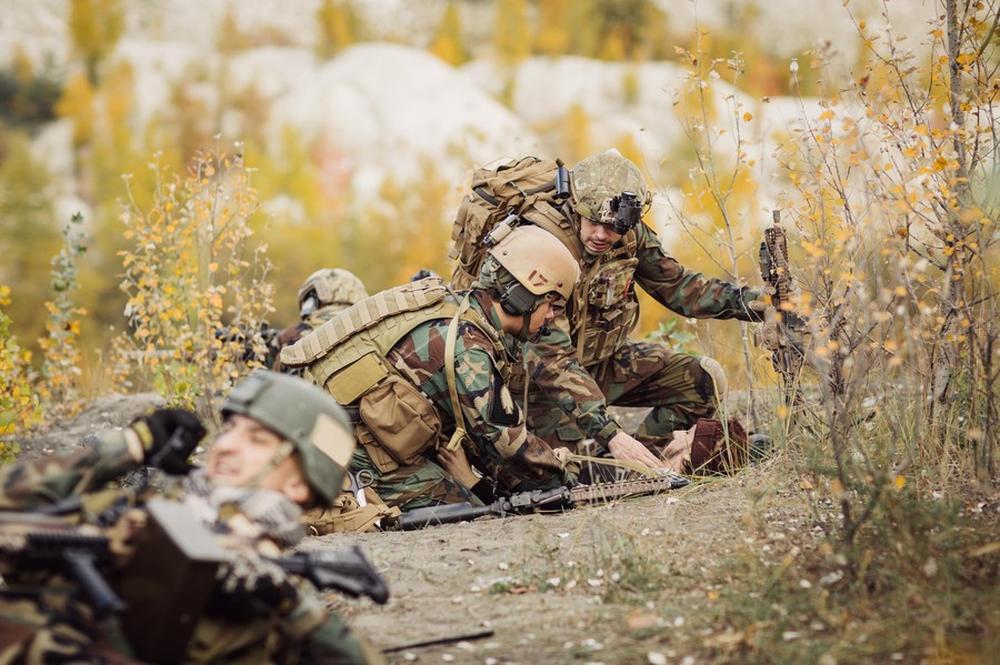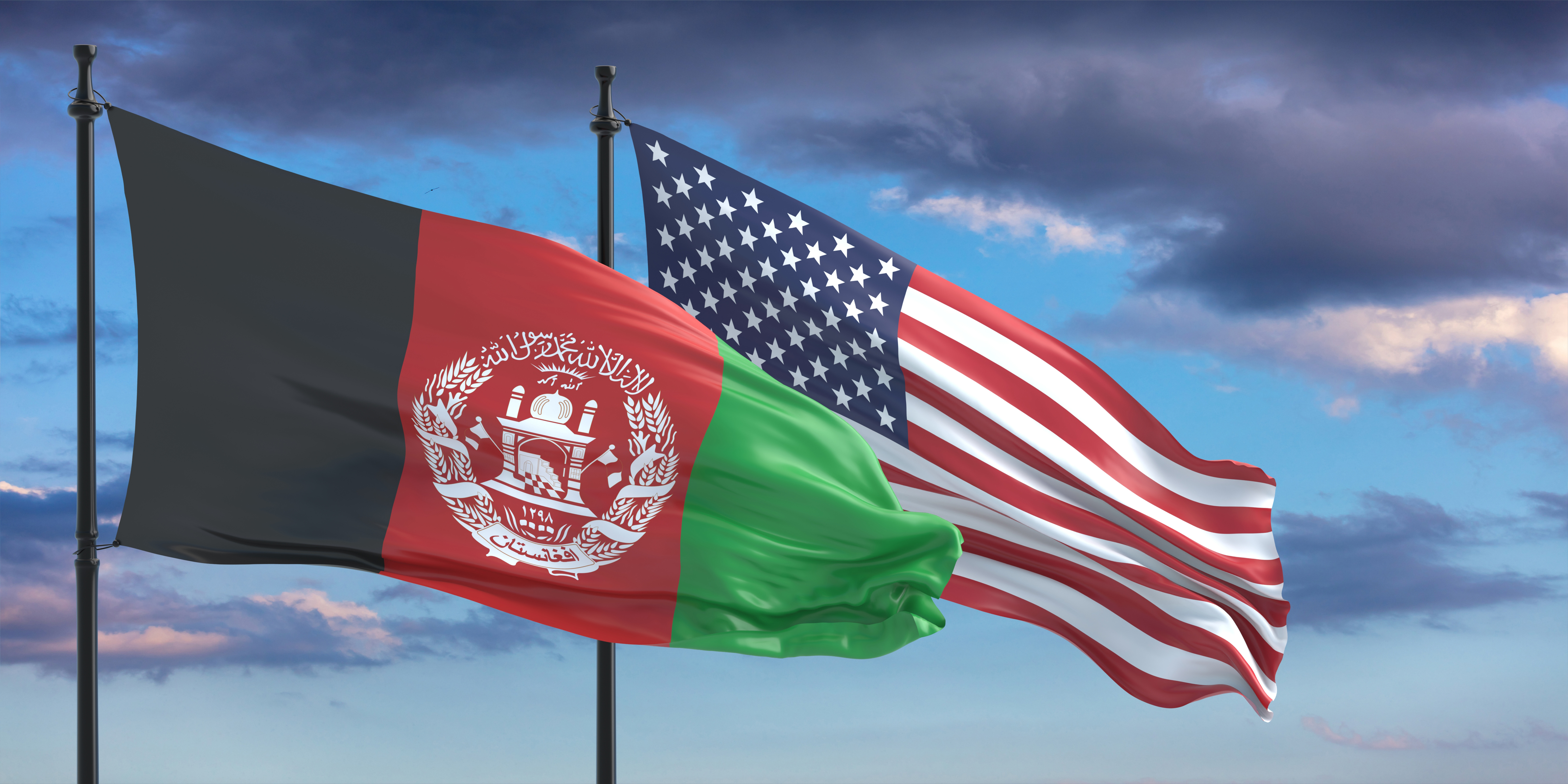- #China
- #Energy & Climate
- #Global Issues
- #US Foreign Policy

► In an effort to expand its influence in the region through One Belt One Road, China will fully utilize the dynamics among Pakistan, Afghanistan, and Iran, and changes in the shifting security environment to expand its mid-to-long term projects with those three countries.
► There is a possibility that Afghanistan could become the stage for greater terrorist activities involving extreme Islamic fundamentalists and independent fighters from Uzbekistan and Tajikistan, which could then evolve into a civil war.
The country that has been busiest in the aftermath of U.S. withdrawal in Afghanistan and the Taliban’s return to power has been China, which shares a border with Afghanistan. Given its intense competition with the U.S. in the region, it has been actively trying to fill the void left by the United States in Afghanistan.
Beginning with the celebration of the 100th anniversary of the founding of the Communist Party, the Xi Jinping (習近平) administration has insisted on a Chinese style socialist development model and has revealed its plan to expand the One Belt One Road strategy based on its “new type of international relations.” Particularly, China has begun to accelerate its two-pronged strategy in response to the United States-led Indo Pacific Strategy and Quad. It has linked its One Belt One Road strategy with ROK-DPRK-China trilateral and DPRK-ROK-China-Russia quadrilateral cooperation in the east—with the Korean Peninsula at the center—and China-Pakistan-Afghanistan trilateral and China-Pakistan-Afghanistan-Iran quadrilateral cooperation in the west—with Xinjiang at the center. Within this mid-to-long term strategy and regional competition with the United States for dominance, the Taliban’s return to power in Afghanistan has led China to accelerate its One Belt One Road strategy with the above-mentioned China-Pakistan-Afghanistan trilateral and China-Pakistan-Afghanistan-Iran quadrilateral cooperation in mind.
On March 27, 2021, Chinese foreign minister Wang Yi (王毅) and Iranian foreign minister Zavad Zarif concluded the “25 Year Comprehensive-Strategic Partnership” agreement. This agreement gives China a reliable source of crude oil and natural gas at an extremely discounted rate over the next 25 years. Iran will receive 400 billion dollars worth of Chinese investment in infrastructure projects including highways, railways, powerplants, ports, and 5G networks. For Iran, a country that experiencing severe economic difficulties caused by COVID-19 and the United States’ rigorous sanctions regime, a 25 year comprehensive and strategic partnership agreement is seen as a turning point in its relationship with China. For China, this agreement allows its One Belt One Road strategy to take shape. At this very moment, China’s largest One Belt One Road project, the China-Pakistan Economic Corridor (CPEC), is well underway. The CPEC is China’s largest One Belt One Road investment, valued around 62 billion dollars, that builds basic infrastructure such as highways, ports, bridges, railways, and powerplants from Xinjiang to Pakistan’s Gwadar Port. Projects such as these allow China to maintain closest relationships with Pakistan to its west and North Korea to its east.
The Taliban forces that took over the void left by the United States in Afghanistan is part of the Taliban Islamic State (IS). Following the Soviet invasion of Afghanistan in 1979 and the Mujahideen movement in the 80s, the Taliban controlled Afghanistan between 1996 and 2001. The United States invasion in 2001 forced the Taliban to escape to Pakistan, from which it carried out operations in secrecy. It now appears that the Taliban Islamic State will lead the Haqqini network and the Tehrik-i-Taliban Pakistan (TTP) and form a new government in Afghanistan. The reason why IS was able to survive despite nearly 20 years of U.S. occupation is due to its inseparable relationship with the Pakistani military Intelligence authorities and Inter-Services Intelligence, which allowed its member to move freely between Afghanistan and Pakistan during U.S. occupation.
On July 28, Chinese foreign minister Wang Yi (王毅) was official invited to meet with Abdul Ghani Baradar, the second in command of the Taliban Islamic State. Abdul Ghani Baradar, who is acknowledged to be the leader of IS or Mullah, is in charge of its external policies and maintains close relationship with Pakistan through his long-time involvement with the Madrassas in Pakistan. In this meeting, Wang Yi (王毅) said that China is willing to assist in Afghanistan’s economic reconstruction and expand the scope of CPEC to include Afghanistan only if the Taliban Islamic State does not threaten Chinese security—unlike the Easter Turkestan Islamic Movement (ETIM) that is fighting to gain independence near Xinjiang. In response, Abdul Ghani Baradar also stressed the importance of the partnership with China and expressed willingness to cooperate with the Afghan economic reconstruction and CPEC projects. In fact, Taliban is desperately in need of establishing close relations with neighboring countries such as China and Pakistan in order to rid of its fundamentalist image and focus on improving the lives of its people and the economy. On August 19, Taliban spokesperson Suhail Shaheen emphasized the importance of cooperation with China by saying that “China is a big country with a huge economy and capacity. I think it can play a very big role in the rebuilding, rehabilitation, reconstruction of Afghanistan.”
On August 16, Hua Chunying (華春瑩), the spokesperson for Chinese foreign ministry, said during a press conference that “On the basis of fully respecting the sovereignty of Afghanistan and the will of all factions in the country, China has maintained contact and communication with the Afghan Taliban and played a constructive role in promoting the political settlement of the Afghan issue...We are ready to continue to develop good-neighborliness and friendly cooperation with Afghanistan and play a constructive role in Afghanistan's peace and reconstruction.” Leading media outlets and experts in China are playing down the possibility of dispatching Chinese troops to Afghanistan while emphasizing the trillion dollars worth of rare earths and minerals buried underneath Afghanistan and the need to resume economic cooperation projects as part of One Belt One Road. In terms of dealing with the activities of ETIM in Xinjiang, China will strengthen its military cooperation with Russia and enhance the region’s multilateral military cooperation through the Shanghai Cooperation Organization (SCO). If the Taliban fails to take complete control of Afghanistan and the resulting violence spills over into the Xinjiang area, China will likely link with Russia and Pakistan, and utilize the SCO to actively intervene in regional terrorist activities.
In an effort to expand its influence in the region through One Belt One Road, China will fully utilize the dynamics among Pakistan, Afghanistan, and Iran, and changes in the shifting security environment to expand its mid-to-long term projects with those three countries. Obviously, mutual understandings among the four countries remain complex, which will complicate Chinese efforts. However, China believes that it can create a China-led regional order through its One Belt One Road and economic projects, especially with the vacuum created by the United States decision to withdraw from Afghanistan. Specifically, China will try to use the situation to its advantage in terms of dealing with its border disputes with India and the United States’ Indo Pacific Strategy and Quad. If China does succeed in using One Belt One Road to further enhance China-Pakistan-Afghanistan trilateral and/or China-Pakistan-Afghanistan-Iran quadrilateral cooperation, it could present an obstacle to the United States’ pursuit of Indo Pacific Strategy and the Quad. Following its withdrawal from Afghanistan, if the United States directs all of its resources to its Indo Pacific Strategy aimed at countering China, the strategic competition between the two superpowers could spill over into Central Asia and the Middle East.
There is a possibility that Afghanistan could become the stage for greater terrorist activities involving extreme Islamic fundamentalists and independent fighters from Uzbekistan and Tajikistan, which could then evolve into a civil war. The internal chaos in Afghanistan has led to greater activities by extremist groups such as Al-Qaeda, IS-K, JeM, and LeT. Therefore, how quickly the Taliban could end this internal chaos and secure its grip on power will determine the timing of its cooperation with China to rebuild the Afghan economy and to participate in the One Belt One Road projects. The Xi Jinping (習近平) administration has already begun to take control of the situation by paying friendly visits to countries including Russia, Iran, and Pakistan, and emphasizing the importance of improved relations with the Taliban. Moving forward, China will see the Afghanistan crisis as an opportunity to further develop its One Belt One Road strategy and economic projects, and continue to develop its two-pronged strategy spanning Afghanistan, Pakistan, and Iran. Also we cannot dismiss the possibility of China trying to expand its influence on the Korean Peninsula.
Jae-Hung Chung(정재흥,鄭載興) is a Research Fellow (Department of Security Strategy Studies) of the Sejong institute in Korea. He received his B.A. from Peking University in China (Beijing), M.A. in Sogang University in Korea (Seoul), and Ph.D. from Chinese Academy of Social Science in China (Beijing). He was an Assistant professor of Kyungnam University (2013-2015), the Institute of Far Eastern Studies (IFES) Analysis (2007-2013) and policy advisor Ministry of National Defence and NIS. He has served as Consulate General of the Republic of Korea Guangzhou in China, Senior Political Researcher (2010-2012). Main research interests include Chinese Security (Defence) and Chinese Non-traditional Security(Terrorism), Sino-North Korea (Sino-South Korea) Security (Defence) relations, Northeast Asian and Korean Peninsula Security (Defence) issue.

